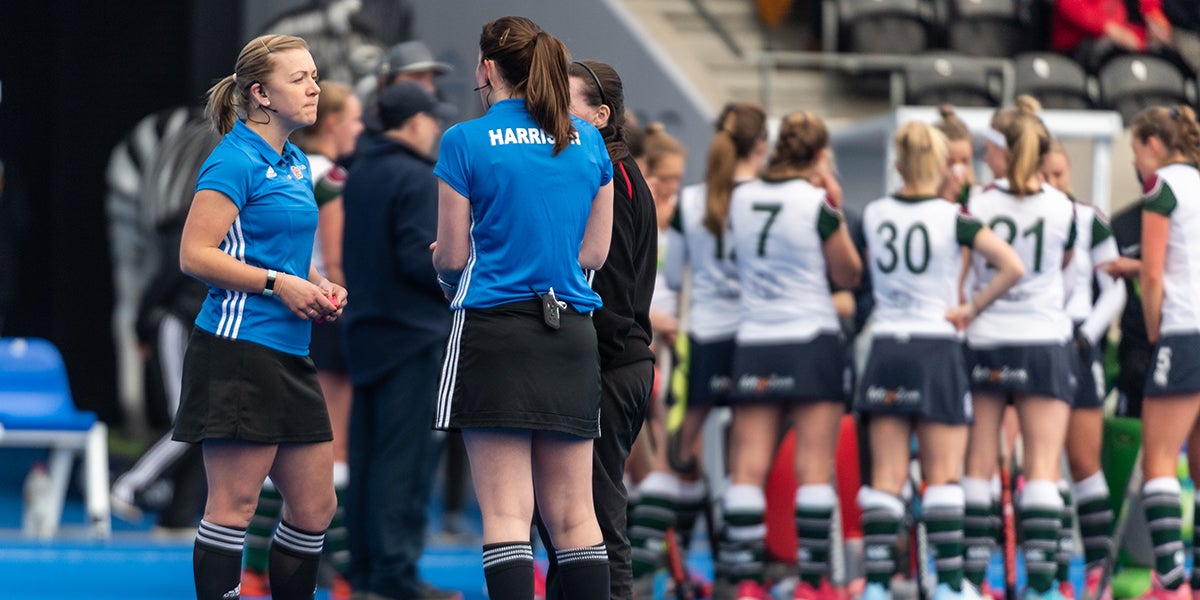- Community
What International Women's Day Means For Hockey This Year

This International Women’s Day (IWD) has a theme of breaking the bias. It is a request to take action and for individuals to make a personal difference to help women and girls progress. Also to take the time to consider what may be happening in our systems and cultures that inhibit women and girls.
As a team sport, hockey is unusual and in a fortunate position that our clubs and leagues teams are pretty evenly split across the men’s and women’s game. We’re rightly proud of being seen to be a gender equal sport. At the very elite level we have had high performing teams at England and GB for many years. Our playing membership is strong and delivers opportunities for women and girls through to the very top.
But do we, as a game, know that this is also true for our volunteers, our coaches, our officials and the sport’s decision makers?
For last year’s IWD, England Hockey were rightly proud to publish statistics around female participation – 51% of players and 43% of people accessing coach development programmes. These are solid foundations to our game. Additionally just over half of the people accessing the level one qualification for officiating on Hockey Hub are female.
However another statistic is that only 28% of England Hockey Officiating appointments are for female officials. Anecdotally it is recognised, as was acknowledged at the recent #ChangeStartTogether conference, there are many more male coaches active and delivering in clubs than female coaches.
Let’s reflect and consider that for a gender equal playing sport, there's possibly a lower number of women in volunteering or paid roles running the game. Is this right? What can we each do on an individual level to ensure women and girls get chances to deliver the game not just play the game? What support do these newly qualified coaches and officials need to be confident to take the first step or the next step? What have we each done on a personal level to check what could make a difference? If we know that people are coming forward to take the qualifications (where necessary) but yet we’re not sure they are then taking part, what can we do to make that happen?
As a sport there is a need to capture an accurate picture of the people who make up hockey. Within our new Areas we don't yet know the true picture of volunteering, officiating, coaching and other deliverers but we need to build this evidence. If it shows the need to act, then we should. It is important to use what we know as a basis to improve our game. As with many underrepresented groups in society, we shouldn’t be asking individual people to change in order to fit the system, we must look to see how we can change the system to allow more people to flourish.
One way England Hockey has started to do this is the Fair Game coaching project and the New Equality, Diversity and Inclusion Framework will highlight similar plans for other areas of the sport.
The GB & Home Nations coaching project Fair Game has been exploring what it means to be a female coach in hockey. In its own words the project says, 'The females in this project want to understand how to make positive change. They want to be challenged and they want to be supported and they want to help others. They want to be good coaches. They want to work with male colleagues and friends to normalise females in coaching, so that the true art of coaching is recognised as a genderless craft.”
There's a very important place for role models to inspire people and England Hockey will continue with profiling people within the game to inspire others. This year, let’s also have the conversations in our clubs and in our committee meetings about who may be missing out on getting involved and why that might be. Let’s have the collective conversation around 'are we seeing enough women across the game as officials, coaches and other key deliverers of the game?'
Please use this year’s theme of #breakthebias to reflect on your own hockey places and see what you can do to encourage, support, and open up ways for more women to get involved.
